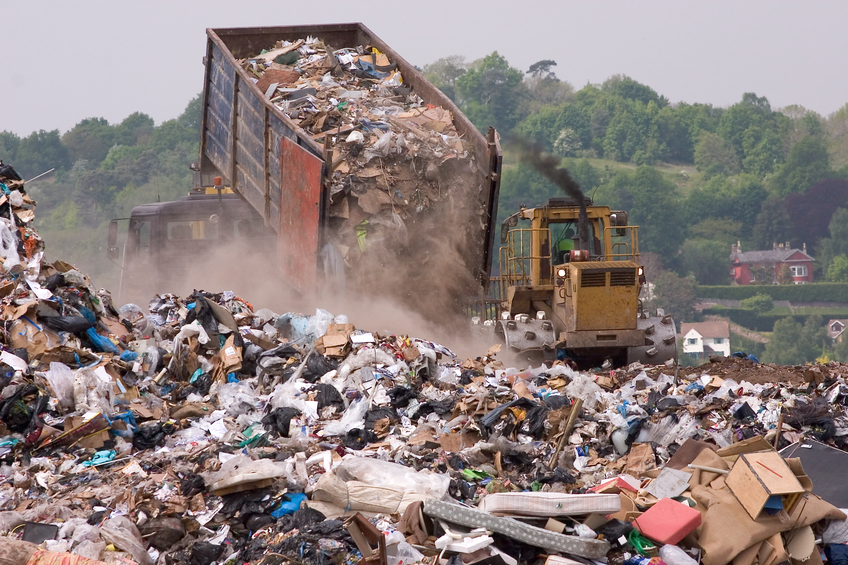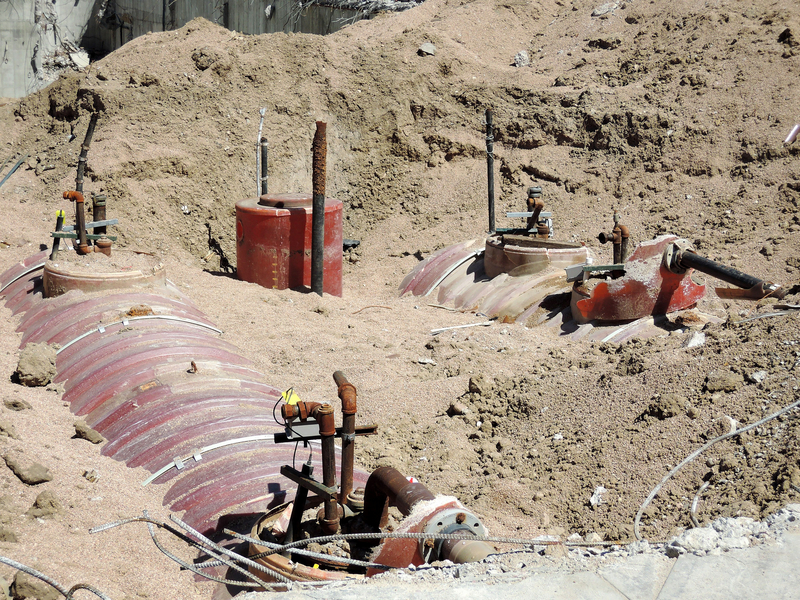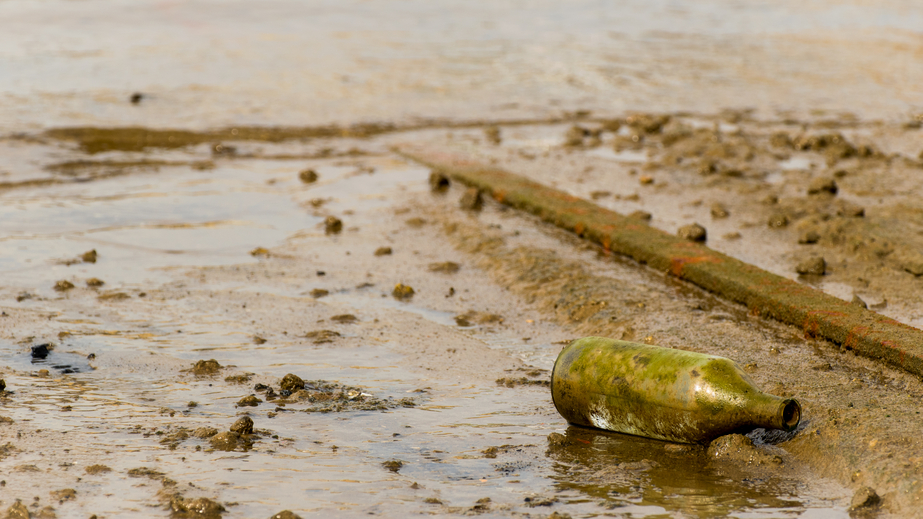Indiana Environmental and Laws/Rules/Ethics 30 PDH Discount Package 2
Courses in this Package
Mold Remediation in Schools and Commercial Buildings (C04-049)
Reducing Lead in Drinking Water in Schools and Child Care Facilities (C07-014)
Solid Waste Disposal Facility - Closure and Post Closure Criteria (C03-005)
Release Detection for Underground Storage Tanks and Piping (C04-050)
Identification and Selection of Remedial Action Alternatives (C08-002)
Earthquake Resilience Guide for Water and Wastewater Utilities (C02-076)
Engineering Laws, Rules and Ethics for Indiana Professional Engineers (IN2-005)

This online engineering PDH course presents guidelines for the remediation/clean-up of mold and moisture problems in schools and commercial buildings. These guidelines include measures designed to protect the health of building occupants and remediators. Individuals with little or no experience with mold remediation should be able to use this course to help them make a reasonable judgement as to whether the situation can be handled in-house. It will also help those in charge of maintenance to evaluate an in-house remediation plan submitted by an outside contractor.
Molds can be found almost anywhere. They can grow on virtually any organic substance if moisture and oxygen are present. There are molds that can grow on wood, paper, carpet, foods, and insulation. When excessive moisture accumulates in buildings or on building materials, mold growth will often occur, particularly if the moisture problem remains undiscovered or unaddressed. It is impossible to eliminate all mold and mold spores in the indoor environment. However, mold growth can be controlled indoors by controlling moisture indoors.
When mold growth occurs in buildings, adverse health problems may be reported by some building occupants, particularly those with allergies or respiratory problems. Remediators should avoid exposing themselves and others to mold-laden dusts as they conduct their cleanup activities. Caution should be used to prevent mold and mold spores from being dispersed throughout the air where they can be inhaled by building occupants.
This 4 PDH online course is intended to environmental and facility engineers, building managers, custodians, and others who are involved in the development and implementation of mold prevention and remediation plans.
This PE continuing education course is intended to provide you with the following specific knowledge and skills:
- Understanding mold preventative measures
- Investigating, evaluating, and remediating moisture and mold problems
- The importance of Personal Protective Equipment
- Developing a Mold Remediation Plan
Upon successful completion of the quiz, print your Certificate of Completion instantly. (Note: if you are paying by check or money order, you will be able to print it after we receive your payment.) For your convenience, we will also email it to you. Please note that you can log in to your account at any time to access and print your Certificate of Completion.

This online PDH course examines sources of lead contamination found in drinking water in schools and child care facilities. It features seven modules on how to enact a plan for testing, remediating, and communicating lead contamination in drinking water.
Lead had been widely used in plumbing in the U.S. until it was determined to be unsafe for human consumption. In children, lead exposure can cause reduced IQ and attention span, learning disabilities, poor classroom performance, hyperactivity, behavioral problems, impaired growth, and hearing loss. Thus, it is important to constantly test for, remediate, and communicate any lead contamination in drinking water.
This course maintains that the only way to know if there is lead in drinking water is testing. It provides information on likely sources of lead in a building’s plumbing system and how to sample different sources of drinking water. It also historically contextualizes the presence of lead in plumbing and subsequent phasing out after being determined unsafe for human consumption.
This 7 PDH online course is applicable to environmental, civil, and mechanical engineers as well as other technical personnel who are interested in learning more about eliminating lead sources from drinking water.
This PE continuing education course is intended to provide you with the following specific knowledge and skills:
- Understanding how to sample drinking water for lead and interpret the results
- Understanding the effects of lead exposure on the human body, particularly for children
- Learning about the historical context in which lead was used in plumbing in the U.S. and why it was phased out
- Learning how to develop and enact a plan to test for, remediate, and communicate any lead contamination in drinking water in schools and child care facilities
Upon successful completion of the quiz, print your Certificate of Completion instantly. (Note: if you are paying by check or money order, you will be able to print it after we receive your payment.) For your convenience, we will also email it to you. Please note that you can log in to your account at any time to access and print your Certificate of Completion.

This online engineering PDH course describes EPA's closure and post-closure criteria for solid waste disposal facilities. The criteria for landfill closure focus on two central themes: (1) the need to establish low-maintenance cover systems and (2) the need to design a final cover that minimizes the infiltration of precipitation into the waste.
Critical technical issues that must be faced by the designer include the following:
- Degree and rate of post-closure and stresses imposed on soil liner components
- Long-term durability and survivability of cover system
- Long-term waste decomposition and management of landfill leachate and gases
- Environmental performance of the combined bottom liner and final cover system
Full closure and post-closure requirements apply to municipal solid waste landfill (MSWLF) units that have been receiving waste since October 9, 1993. For MSWLF units that stopped receiving wastes prior to October 9, 1993, only the final cover requirements apply.
This 3 PDH online course is applicable to owners, operators of MSWLF units, as well as engineers, designers, managers, construction workers and any other personnel involved with the closure and post-closure of municipal solid waste landfills.
This PE continuing education course is intended to provide you with the following specific knowledge and skills:
- Final cover design
- Alternative final cover design
- Closure plan
- Closure criteria
- Post-closure care requirements
- Post-closure plans
In this professional engineering CEU course, you need to review Chapter 6, “Closure and Post-Closure” of the EPA “Solid Waste Disposal Facility Criteria” Technical Manual.
Upon successful completion of the quiz, print your Certificate of Completion instantly. (Note: if you are paying by check or money order, you will be able to print it after we receive your payment.) For your convenience, we will also email it to you. Please note that you can log in to your account at any time to access and print your Certificate of Completion.

This online engineering PDH course presents information about the 2015 federal underground storage tank (UST) system requirements and regulations. UST and its underground piping must have release detection to comply with federal law. In addition to complying with federal law, some implementing agencies may have additional regulations which apply to the system.
Each of the sections herein focus on one release detection method for underground tanks and/or the requirements for underground piping. You will find answers in this booklet to basic questions about how release detection methods work and which methods are best for your UST site.
As of September 2015, over 528,000 UST releases were confirmed since the UST program was implemented. At sites without release detection, contamination can spread undetected, requiring difficult and costly clean-ups.
If you have effective release detection, you can respond quickly to signs of releases. You can minimize the extent of or eliminate potential for environmental damage and the threat to human health and safety. Early action also protects you from high costs that can result from cleaning up extensive releases and responding to third-party liability claims.
This 4 PDH online course is applicable to petroleum engineers, owners/operators, and personnel involved with the release detection of underground storage tanks.
This PE continuing education course is intended to provide you with the following specific knowledge and skills:
- Learning the basic release detection requirements for underground storage tanks (USTs) and piping
- Understanding the different release detection methods for USTs and choosing the best option for a given application
- Familiarizing with the federal regulatory requirements for release detection
Upon successful completion of the quiz, print your Certificate of Completion instantly. (Note: if you are paying by check or money order, you will be able to print it after we receive your payment.) For your convenience, we will also email it to you. Please note that you can log in to your account at any time to access and print your Certificate of Completion.

This online engineering PDH course provides technical guidelines that will aid in the identification and selection of remedial actions at uncontrolled hazardous waste sites. It presents information on site-specific corrective measure alternatives including performance of preliminary assessments and site investigations to define the problem and determine its extent; remedial investigations and feasibility studies to develop options for remedial action; and selection of one or more cost-effective remedial actions in support of clean-up activities.
This 8 PDH online course is applicable to civil, environmental or geotechnical engineers, as well as design and construction personnel involved with hazardous and toxic waste remedial activities.
This PE continuing education course is intended to provide you with the following specific knowledge and skills:
- Determination of the nature and extent of contamination
- Establishment of clean-up criteria
- Development and screening of remedial action alternatives
- Detailed analysis of remedial action alternatives
In this professional engineering CEU course, you need to review Chapter 2 of the US Corps of Engineers Publication EM 1110-1-502, "Identification and Selection of Remedial Action/Corrective Measure Alternatives".
Upon successful completion of the quiz, print your Certificate of Completion instantly. (Note: if you are paying by check or money order, you will be able to print it after we receive your payment.) For your convenience, we will also email it to you. Please note that you can log in to your account at any time to access and print your Certificate of Completion.

This online engineering PDH course describes how water and wastewater utilities can be more resilient to earthquakes. It provides the best practices from utilities that have used mitigation measures to address the earthquake threat.
An earthquake is a sudden and violent shaking of the ground caused by movement within the earth’s crust or by volcanic activity. The water sector is particularly vulnerable to earthquake damage and service disruptions. By understanding the threat of earthquakes and the potential impacts to both the water infrastructure and the community, water utility owners and operators can make more informed decisions on earthquake mitigation options.
This 2 PDH online course is applicable to environmental, civil, and structural engineers as well as others interested in learning more about how wastewater utilities can be more resilient to earthquakes.
This PE continuing education course is intended to provide you with the following specific knowledge and skills:
- Understanding the earthquake threat
- Knowing how to Identify vulnerable assets and determine consequences
- Learning how to pursue mitigation and funding options
- Familiarizing with the available tools to assess specific structures
- Familiarizing with the standards and resources for earthquake resilience
In this professional engineering CEU course, you need to review the document “Earthquake Resilience Guide for Water and Wastewater Utilities” which is based on the U.S. EPA publication number EPA-810-B-18-001 dated March 2018.
Upon successful completion of the quiz, print your Certificate of Completion instantly. (Note: if you are paying by check or money order, you will be able to print it after we receive your payment.) For your convenience, we will also email it to you. Please note that you can log in to your account at any time to access and print your Certificate of Completion.

This online engineering PDH course presents the laws and rules of ethics and professional responsibility governing the practice of engineering in the State of Indiana. Excerpts from the Indiana Code (Title 25, Article 31) and the Indiana Administrative Code (Title 864) including licensing renewal, proper use of the engineer’s seal, continuing education requirements and other pertinent regulatory provisions are presented in this course.
Since engineers are faced with frequent moral and ethical dilemmas while practicing their engineering profession, this course will provide you with moral and ethical guidance in your decision making process. Most importantly, it will provide you with insight on how to conduct, respect and protect your engineering practice with the utmost professionalism.
This 2 PDH online course is applicable to Professional Engineers licensed in the State of Indiana and who are required to demonstrate continuing professional competency in engineering laws, rules and ethics as a condition of their license renewal. For each renewal period, every licensee must complete thirty (30) professional development hours, at least one (1) of which must be relative to the Indiana Laws and Rules, and at least one (1) of which must be relative to the rules of professional responsibility, conduct and ethics.
This PE continuing education engineering course is intended to provide you with the following specific knowledge and skills:
- Familiarizing with the laws and rules regulating the practice of engineering in the State of Indiana
- Understanding the license renewal process, continuing education requirements, proper use of seal and other pertinent provisions
- Understanding the role of the Indiana Board and its disciplinary authority
- Learning about engineering ethics and the rules of professional conduct and responsibility
Upon successful completion of the quiz, print your Certificate of Completion instantly. (Note: if you are paying by check or money order, you will be able to print it after we receive your payment.) For your convenience, we will also email it to you. Please note that you can log in to your account at any time to access and print your Certificate of Completion.